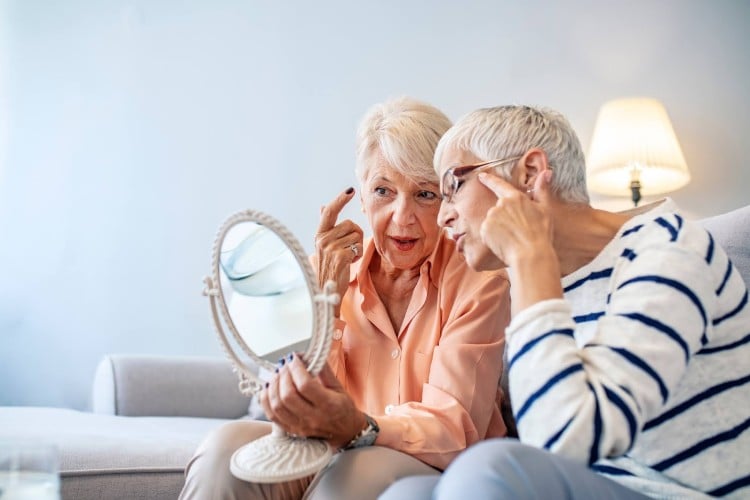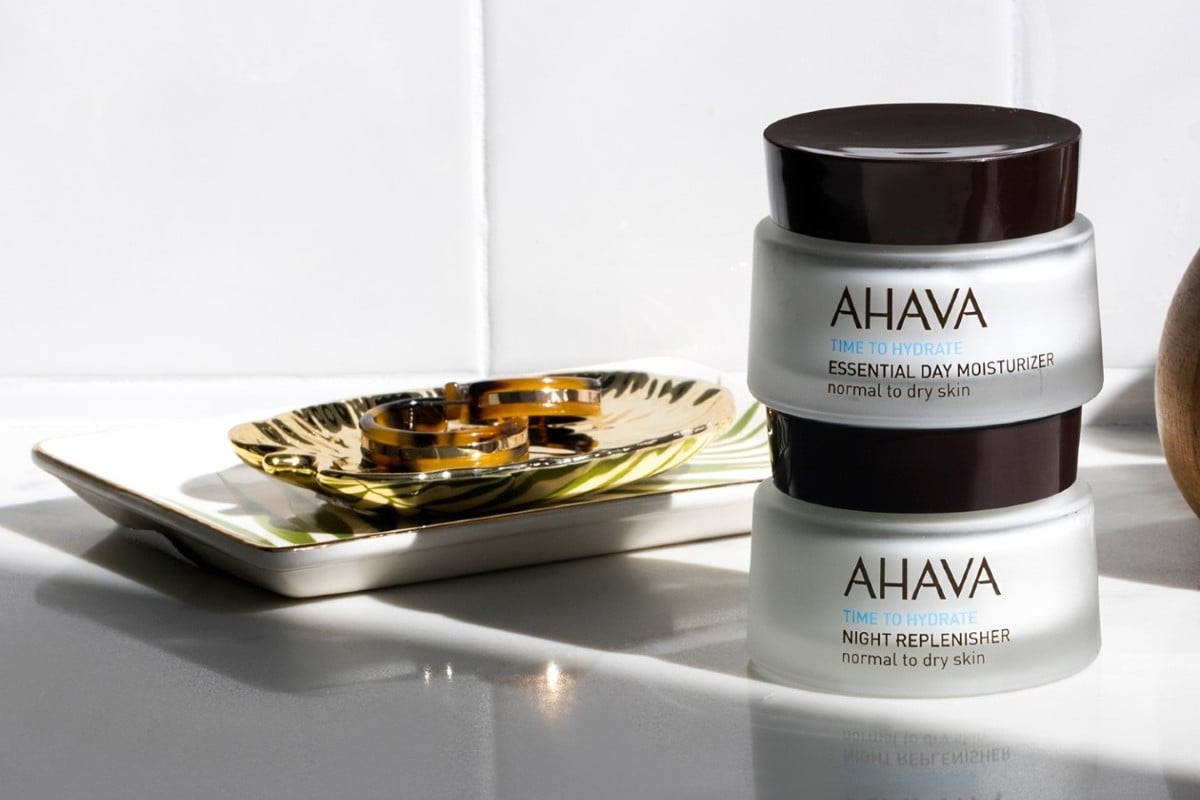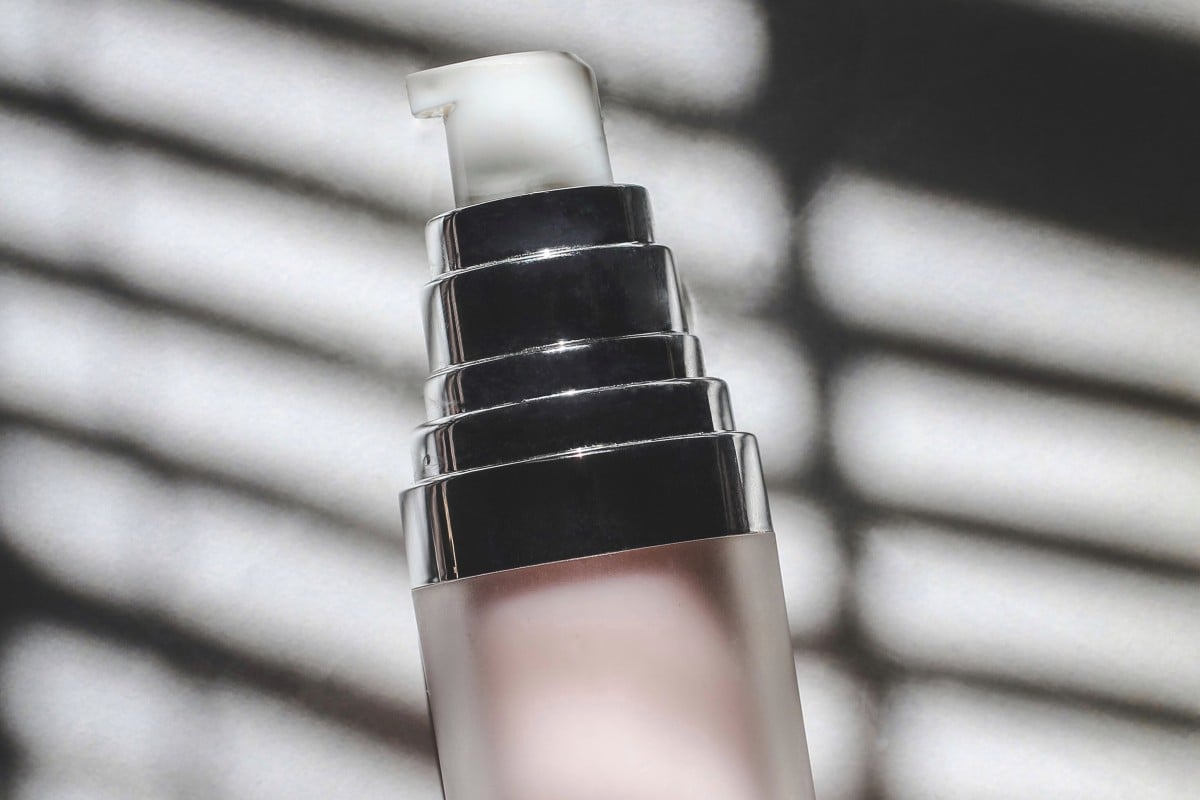Mature Skin 101: Common Challenges and Solutions for Aging Skin
We may include products hand-picked by our editors that we think will be useful to our readers. When you purchase through our retail links, we may earn affiliate commissions – check out our product review process and information sources.
Beyond wrinkles and fine lines, mature skin faces many more problems. Beginning in early adulthood, your body slows down collagen production by 1% to 1.5% each year. As one of the main components of the skin, collagen affects the health and appearance of the skin. Therefore, the aging process of the skin is not just an aesthetic issue. As with any body part, your skin can develop problems and challenges over time due to improper care and poor lifestyle habits. Here’s how to keep mature skin in top condition and avoid problems like dryness or sensitivity.
What challenges does mature skin encounter?
Mature skin is rougher and drier due to transepidermal water loss
Transepidermal water loss (TEWL) is one of the biggest culprits when it comes to rough and dry mature skin. During this process, water from the dermis or middle layer of the skin is transferred to the epidermis or outer layer and evaporates. Although this process is normal, mature skin is less able to control the evaporation of water from the skin layers. In addition, the outer layers of aging skin are slower to recover from transepidermal water loss. Because mature skin is less able to retain water, it tends to become rough and dry. This leads to more visible wrinkles and fine lines.
Aging skin becomes thinner and clearer
Once your skin begins to age, the thickness of the epidermis also changes. Long-term use of oral medications such as blood thinners, corticosteroids, aspirin and NSAIDs can also lead to thinning of the skin. However, in this case, a decrease in skin collagen production is the main cause, as collagen makes up about 60% of the dry weight of the dermis.
Once you start losing more collagen, you will notice that your skin is significantly thinner. As a result, the veins and capillaries in your hands, limbs and face also become more visible.
Skin loses strength and elasticity
The middle layer of your skin, the dermis, also undergoes dramatic changes due to its reduced water retention and collagen production. This layer of skin contains a network of cells of collagen and elastin fibers that help your skin become stronger and more elastic. Changes in this layer of connective tissue can affect the strength and elasticity of your skin. As a result of these, some people may grow tougher skin, while most will notice a buildup of wrinkles. Unfortunately, once you start to lose strength and elasticity, your skin may also become more prone to bruising.
Age spots may appear on your skin
Finally, mature skin will often develop age spots in areas exposed to the sun, such as the face, hands and extremities. These age spots are a response to excessive sun exposure. Although these spots do not require medical attention, they will not disappear from your skin once they appear.
How can I improve my mature skin?
Use a skin care routine that is appropriate for mature skin
Because your skin changes internally as you age, it requires more TLC over time. to target dryness as well as loss of thickness and elasticity, you need to establish a proper anti-aging skin care routine.
Start with a daily cleanser that gently exfoliates for softer, more even skin. Follow with a toner that helps redefine pores. Then, prevent your skin from becoming dry and rough by using a mature skin moisturizer that contains anti-aging ingredients such as retinoids and collagen peptides.
Last but not least, if you want to eliminate wrinkles, mature skin needs to be exfoliated more than with cleansers. Stick to weekly exfoliation, preferably chemical or enzymatic, as it will help you eliminate dullness and increase the thickness and firmness of your skin. You should consider using a facial exfoliator for mature skin that contains an exfoliating agent, such as glycolic or lactic acid – these products are best for revealing a smoother, brighter complexion. This skin care routine will provide your skin with enough moisture and collagen to ease the aging process.
Sunscreen must be applied daily
Sunscreen is mandatory, especially because mature skin is more fragile and sensitive to sun damage. You often need to protect it from hyperpigmentation, age spots and skin cancer, so make sure you get all the sun protection you need by buying a broad-spectrum sunscreen. This means it protects against both UVA and UVB damage. If you’re staying indoors, you’ll also need to use a sunscreen with a sun protection factor (SPF) of at least 30. But if you plan to go outside, you will need a sunscreen with an SPF of at least 50 to provide additional protection. It is also best to use sunscreens that are free of oxybenzone and octinoxate, both of which have a negative impact on skin health and are not environmentally friendly.
Improve your diet
In addition to using the right skin care products, your skin needs to be properly nourished from the foods you consume. For example, herbal beauty treatments can supplement your body with antioxidants and nutrients that slow down the aging process.
For example, the Mannheim University Skin Clinic found that drinking 20 ml of dandelion juice improved the appearance of the skin. Their study showed that women who regularly consumed dandelion juice had better skin elasticity and moisture after just one month.
Other herbal remedies you can try are ladies lichen tea and green tea, which contain antioxidants that can reduce wrinkles. Start by boiling a tablespoon of vanilla leaves in 250 ml of water. Let the tea steep for ten to fifteen minutes and then strain the leaves. Drinking this tea on a regular basis will naturally reduce the visible signs of aging.
Adopt a healthy lifestyle
Bad lifestyle habits can negatively affect different aspects of the body, including the skin. For example, chemicals in cigarette smoke can damage collagen and elastin, thus accelerating the aging process of the skin. Likewise, excessive alcohol consumption dehydrates the body, which is how it thins and dries out the skin. Finally, lack of sleep not only leads to dark circles under your eyes, but also causes dark spots and fine lines. Since your skin regenerates when you sleep, you must get at least seven hours of sleep to allow it to repair itself.
Takeaway
Like the rest of your body, your skin needs extra care and attention as you age. By having a proper skin care routine and healthy habits, you can ward off the common challenges of mature skin.




